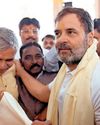
BUYING A CAR these days is not just about the brand or the mileage. It is increasingly about which variant to buy—petrol, diesel, CNG or the latest craze, the electric and the hybrid models. The world has realised that opting for an electric vehicle is yet another step forward in the fight against climate change, which was set out eight years ago at the Paris agreement.
Climate change and global warming are clearly at a tipping point. Unrelenting floods in Asia, sweltering heat in Europe, terrible drought in the Horn of Africa and wildfires in North America are all harbingers of the deadly reality. The 2015 Paris plan is to keep the rise in global temperature below at least 2 degrees centigrade, the ideal level being 1.5 degrees. The preferred method to achieve this goal is a structural shift from fossil fuels to renewable energy. That costs money.
A recent report by the International Renewable Energy Agency (IRENA) says the transition requires at least $4.4 trillion annually. It is here that the G20 countries—which together account for more than 85 per cent of the global GDP—have to play a pivotal role. Mapping out an ambitious goal “to triple renewable energy capacity globally… by 2030”, a hallmark of the G20 Delhi declaration, the emphasis is on reforming the global financial institutions and the debt structuring system. The aim is to make funds affordable and available in a fair manner so that the developing nations can meet their climate obligations. To put up a robust fight against climate change is, therefore, also about the availability of low-cost financing to combat the rising heat and deteriorating climatic conditions, particularly against the backdrop of rising interest rates.
Esta historia es de la edición September 24, 2023 de THE WEEK India.
Comience su prueba gratuita de Magzter GOLD de 7 días para acceder a miles de historias premium seleccionadas y a más de 9,000 revistas y periódicos.
Ya eres suscriptor ? Conectar
Esta historia es de la edición September 24, 2023 de THE WEEK India.
Comience su prueba gratuita de Magzter GOLD de 7 días para acceder a miles de historias premium seleccionadas y a más de 9,000 revistas y periódicos.
Ya eres suscriptor? Conectar

Use multi-asset investing to overcome portfolio volatility
EQUITY MARKETS have been choppy during this year. After rallying for the better part of the first nine months of 2024, equities corrected sharply in October and November, before taking off once again on rally mode in December.

Twist of faith
Upamanyu Chatterjee is back with his wry sense of humour in his new novel, and most of it is directed at religion and spirituality

THE GLORY OF SARI
Saris of Memory weaves together history and textiles, highlighting key moments from the author's collection

We win together
We invented chess, which was pretty cool of us. The original game 'chaturanga'that is four divisions (infantry, cavalry, elephantry and chariotry)-was a war strategy game. When the game travelled to the Middle East, they mangled the Sanskrit and it ended up being called 'shatranj' instead.

BEATS THAT HEAL
Music ignites the light within us, says Grammy-winner Chandrika Tandon

Older, smarter, sexier
Those who worship him regardless of where he works have continued to do so. Such is the power of Alessandro Michele, that after being the face of some mega brands for 10 years (namely Gucci and now Valentino), he remains bigger than the labels themselves. His debut collection for Valentino was presented at the recent Paris Haute Couture Week, and it has been adored by his adorers.

The road to peace
Future political dialogues should explore means of ensuring a more robust autonomy to tribal communities

Diary of a Sherpa
Amitabh Kant's new book is a comprehensive account of the G20 Summit held in Delhi in 2023

The annoying orange
Everything is great. All is sunshine. I am an eternal optimist.\" It's the fad of our TikTok times everything is not great, the sun sets daily, nothing is eternal. If anything, everything is ephemeral, night brings darkness, and optimism often crumbles under the weight of history. British philosopher Roger Scruton warned: \"Hope untempered by the evidence of history is a dangerous asset, one that threatens not only those who embrace it, but all those within range of their illusions.\"

NO SEAT, YET UPBEAT
The Congress is buoyed by its increased vote share in Delhi, and feels it can push the AAP into further decline